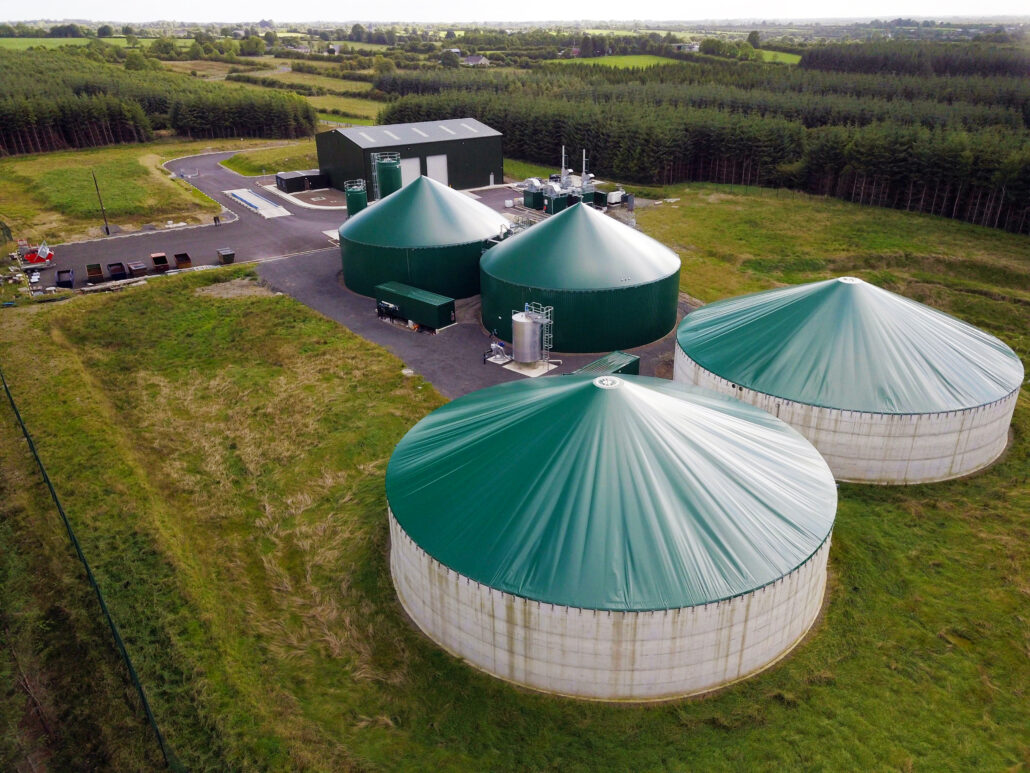
It’s all about the methane – and biogas is the key solution
Jon Hughes, Head of Communications, World Biogas Association, believes…A succession of recent studies – the latest a joint publication by the UN Environment Programme (UNEP) and the Climate and Clean Air Coalition (CCAC) – has emphasised the importance of reducing methane as much as carbon dioxide (CO2) emissions in the global effort to mitigate and adapt to climate change.
A few weeks ago, the US National Oceanic and Atmospheric Administration (NOAA) revealed that there had been a record rise in global methane emissions in 2020 of 14.7 parts per billion (ppb). This is the largest annual increase recorded since systematic measurements began in 1983. The global average burden of methane for December 2020, the last month for which data has been analysed, was 1892.3 ppb. That would represent an increase of 6% since 2000.
Why is methane so important?
Methane emissions are a cause for heightened concern because we are in a race against time. The scientists say we have 10 years to reverse the current emissions trend and keep global warming to below 2°C – and better still, drive it to below 1.5°C. Over its first 10 years in the atmosphere, methane has around 85 times more global warming potential than CO2. In other words, within a decade, one tonne of methane emitted is equal to releasing 85 tonnes of CO2. There is no net zero if we don’t curb these emissions, and we need to do it now.
The NOAA say anthropogenic emissions are the principal cause of the increase. The International Energy Agency (IEA) Methane Tracker says that 60% of the 570 million tonnes of methane emitted annually originate from human activity such as agriculture and waste management. Our own research, captured in our report Biogas: the Pathways to 2030 launched in March this year, indicates that this human activity generates around 105bn tonnes of organic wastes each year, emitting methane and other harmful gases directly into the atmosphere as they decompose, even when collected and put in landfills or incinerated.
The anaerobic digestion solution
Recycling unavoidable organic wastes from households and food manufacturing, manures and slurries, other agricultural wastes, stubble, wastewater and sewage through anaerobic digestion (AD) hoovers up that methane and generates a green gas and a natural fertiliser that can displace fossil-based equivalents in carbon-intensive sectors such as heat, transport and agriculture. Crucially, unlike hydrogen for example, AD is a ready-to-use technology that can inject the biogas into existing infrastructure, making it an immediate solution to the problem of GHG emissions.
By 2030, WBA assesses that by recycling just these organic wastes, biogas can mitigate 5% of global carbon emissions and displace 5% of fossil fuels, delivering a total GHG saving of at least 10%. If deployed immediately, AD and biogas could therefore help the world get back on track to keep global warming to below 2°C before this decade is over. The industry also offers an incentive to reduce food waste in the first place and provides an effective waste management system for municipalities around the world.

COP26, NDCs and the biogas imperative
Given the narrow window of opportunity we have to address the climate emergency, the forthcoming COP26 meeting in November will be critical to ensure that countries take truly decisive action through their Nationally Determined Contributions (NDCs) to the Paris Agreement. The Inter-Governmental Panel on Climate Change has determined that global GHG emissions need to be cut by 45% from 2010 levels by 2030 for the targets to be met. In 2017, the first round of NDCs submitted by 192 of the 196 signatories delivered only 1% of those reductions. Things looked even bleaker when President Trump withdrew the US from the Paris Accords that same year.
Four years on, as hosts of COP26, the UK has thrown down the climate gauntlet with a pledge to cut its GHG emissions by 68% by 2030, a rate currently faster than any other developed nation. Alongside Denmark (on target to achieve 100% renewable electricity from wind and solar by 2030, and 100% renewable gas from biomethane by 2040) and the US (now back in the Paris Agreement fold with an impressive commitment to halve their emissions by 2030), the UK is showing welcome leadership in setting ambitious targets.
However, despite these encouraging announcements, any NDC that doesn’t feature AD and biogas cannot be read as having serious realistic intent to address the existential crisis posed by climate change.
No net zero without biogas
With only 2% of the world’s unavoidable organic wastes currently treated through AD, the amount left to emit methane and other harmful gases into the atmosphere is huge. Only until this 98% remainder is captured, recycled through AD and transformed into green gas, bioCO2, biofertilisers and other valuable bioproducts can the world hope to achieve Net Zero – the longer-term version of the Paris Agreement now being pledged not just by countries, but by municipalities, businesses and entire industrial sectors.
AD can turn organic wastes into an invaluable resource to address climate change. More than just capturing GHG and producing bio-products, it’s the pillar upon which societies can build a truly sustainable, circular economy and mitigate global warming in the long term. The knowledge and technology are already here. What is needed now – urgently – is the political will to deploy it.
by Jon Hughes, Head of Communications, World Biogas Association
End.
The World Biogas Association is a proud partner of Net Zero Week 2021.
Going net zero means a better business and a better environment for everyone. During #NetZeroWeek2021 you can access dozens of exclusive live webinars/podcasts; all free-to-attend.
Register for the newsletter today and be the first to see the full live programme
The World Biogas Association will be hosting the World Biogas Summit 2021 virtually from 6th to 8th July. To find out more and register, visit: www.world-biogas-summit.com.
